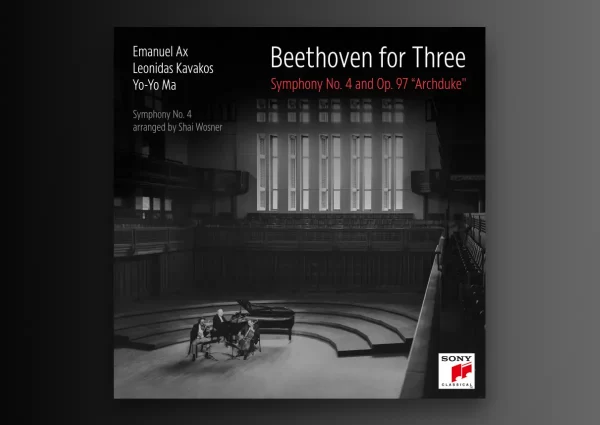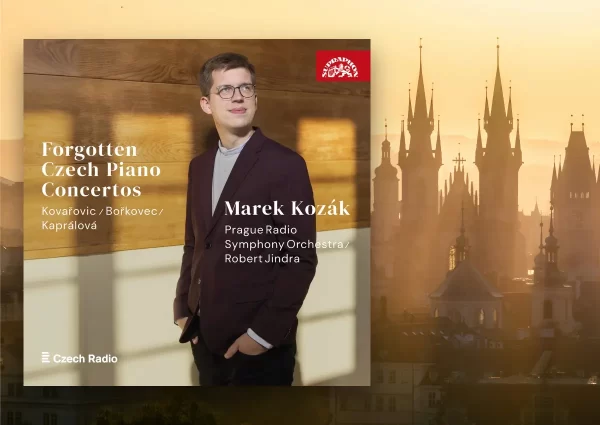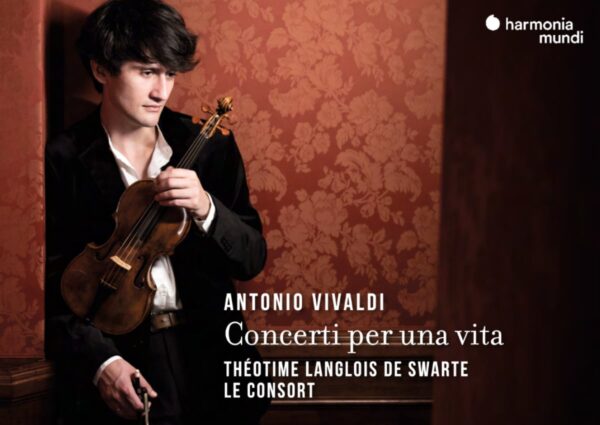Image: ©️ Marc Borggreve
Ronald Brautigam recorded Beethoven’s piano concertos only a decade ago, surprising many listeners by choosing to use a modern Steinway D instead of the fortepiano. That set, spread over 4 CDs, includes not only the five concertos, but the Concerto in D major (Beethoven’s own adaptation of his violin concerto), the Choral Fantasia and Brautigam’s orchestration of an early E-flat concerto written by Beethoven at the age of 14. Ably accompanied by the Norrköping Symphony Orchestra and conductor Andrew Parrott, the set features typically stunning BIS SACD sound.
So, is a new Brautigam cycle needed? Has his interpretation of these masterworks changed drastically in the last ten years? Does performance on a fortepiano, accompanied by a period instruments orchestra and a different conductor warrant another concerto cycle?
For the most part, the answer is yes. Die Kölner Akademie and Michael Alexander Willens are exceptionally sensitive collaborators, and their rapport with Brautigam is obvious. The numerous passages of dialogue between piano and orchestra are wholly effortless (listen to the slow movement of the third concerto, beginning at 3’25” – what a fabulous bassoon sound!), and their phrasing reveals impressive unanimity. Time and again, Brautigam and the orchestra seem to feed off one another, united in their pacing of the musical argument. The BIS recording is superb, capturing the fruity, heterogeneous color palette of Die Kölner Akademie and the two McNulty pianofortes in all their glory, while ensuring a consistently realistic balance between soloist and orchestra.
Brautigam’s performance times in the two cycles are remarkably consistent; the only major difference is a significantly faster first movement in Concerto No. 1, because Brautigam plays a far shorter cadenza, perhaps to enable BIS to fit three concertos onto a single CD.
Anyone hoping for overtly romantic interpretations of these concertos might find these performances disappointing. Brautigam does allow himself some interpretative freedom, but he is never self-indulgent and takes Beethoven’s metronome indications seriously. In the slow movements especially, his tempos may seem unduly fast, and it may take several hearings to grasp how they make sense within his interpretation of an entire concerto. The rhapsodic musings of Brendel and Uchida (especially in her most recent set with the Berlin Philharmonic and Simon Rattle) would be out of place in these performances; Brautigam does not seek to wring every ounce of emotional weight from each phrase. Yet his slow movements are certainly not emotionally generic or superficial. After repeated hearings, I came away from these performances with a greater appreciation of the fragile beauty, the nuanced light and shade in this music. Perhaps having recently completed a 15 CD series of Beethoven solo piano works, Brautigam can now more completely inhabit these pieces’ sound world?
The outer movements feature Brautigam’s customary bravura and virtuosity, a performer at the height of his considerable powers. One need only hear a minute of the third movements of the first two concertos to be awestruck by Brautigam’s technical prowess and prodigious energy. In his first cycle, Brautigam, Parrott and the orchestra seemed intent on showing the listener that modern instruments can be made to sound “authentic,” resulting in a string sound that sometimes sounded wiry and brittle (featuring a complete avoidance of vibrato) and interpretations that could, at times, sound a bit calculated. These new interpretations are more convincing and without artifice, revealing Brautigam’s ever-deepening connection to, and understanding of, Beethoven’s music.
No one interpreter can fully realize every aspect of these inexhaustible scores and the potential buyer has an overwhelming choice of recordings to suit every taste and interpretative viewpoint. But this cycle offers a great deal: playing of jaw-dropping energy and accomplishment, wedding to imaginative and intelligent interpretations that produce numerous moments of ravishing beauty and spine-tingling joy; a true collaborative partnership between orchestra and soloist faithfully captured in a recording of exceptional warmth, depth, and clarity, with lucid and engaging liner notes by Jean-Pascal Vachon. Even in an overly-crowded field, this recording is warmly recommended.

Beethoven – Piano Concertos No. 1-5
Ronald Brautigam – Fortepiano
Die Kölner Akademie
Michael Alexander Willens – Conductor
BIS Records, SACD BIS-2274
Brautigam Plays Beethoven
Read more classical music reviews or visit The Classic Review Amazon store
Follow Us and Comment:
Get our periodic classical music newsletter with our recent reviews, news and beginners guides.
We respect your privacy.









